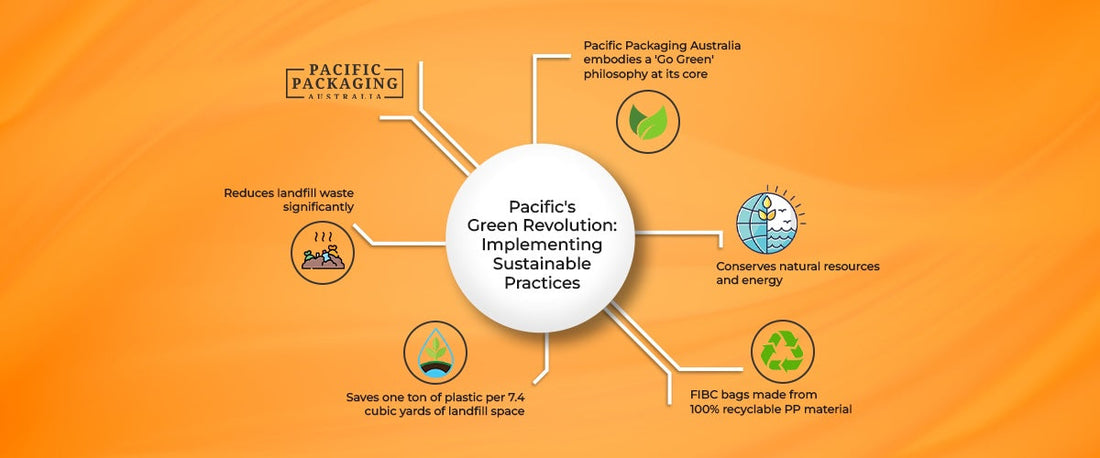Pacific Packaging Australia is Leading the Way Towards a Greener Tomorrow through Sustainable FIBC/Bulk Bags Recycling

Recycling FIBC Bags: A Smarter Step Towards Sustainability
At Pacific Packaging Australia, we proudly embrace the ‘Go Green’ philosophy. Sustainability isn’t just a trend — it’s embedded in everything we do, from our day-to-day operations to the products we supply. At the heart of our environmental commitment lies a focus on recycling — not just as a waste solution, but as a proactive step toward a healthier planet.
Our FIBC bulk bags aren’t just practical packaging solutions — they’re a reflection of our long-term commitment to sustainability.
What Makes FIBC Bags Recyclable?
Made from 100% polypropylene (PP), our bulk bags are not only tough and versatile but also fully recyclable. Recycling one FIBC bag can save up to one tonne of plastic and 7.4 cubic yards of landfill space — a meaningful impact when scaled across industries.
Polypropylene is a thermoplastic polymer that can be shredded, melted, and remoulded into new products, reducing demand for virgin plastics and cutting back on environmental waste.
Why Recycling Matters
- Conserves Resources: Recycled PP reduces the need for virgin materials, helping preserve natural resources.
- Saves Energy: Producing items from recycled materials uses significantly less energy than creating new plastic from scratch.
- Reduces Landfill Waste: Diverts usable plastic from landfills and reduces harmful emissions.
- Saves Space: Recycling one tonne of plastic saves 7.4 cubic yards of landfill space — a big deal in growing urban areas.
Choosing the Right Bags for Reuse
Many of our FIBC bags are suitable for reuse, but safety is key. To maximise value and maintain safety standards, choose bulk bags with appropriate safety ratings and inspect them carefully before reuse.
Recycling Grades
- Grade A: Clean and bright white
- Grade B: Predominantly white with light colouring
- Grade C: Dirty or coloured bags
When to Reject a Bag (per FIBCA guidelines)
- Visible damage to lift straps (fraying, tears)
- Contamination on the outside surface
- Signs of mould or dampness
- Embedded wood splinters or sharp contaminants
The Reconditioning & Recycling Process
- Reject: Discard bags that don’t meet safety standards
- Clean: Remove dust and contaminants
- Recondition: Repair any damaged components
- Track: Log usage history for safety
- Test: Check strength before reuse
- Collect: Sort bags by recycling grade
- Clean Again: Remove zippers, liners, labels
- Shred: Reduce to manageable plastic flakes
- Separate: Sort by plastic type, colour, melting point
- Compound: Melt and reprocess into PP pellets for reuse
A Call to Action
Only around 1% of global polypropylene is recycled. The rest ends up in landfill — slowly degrading and leaching harmful substances into the environment. At Pacific Packaging Australia, we believe in doing better.
We’re proud to offer recyclable FIBC bulk bags as part of our commitment to environmental responsibility. Join us in creating a cleaner future — one bag at a time.
If you’re unsure about which bag is best suited to your operation or how to properly reuse or recycle your packaging, our team is here to help. Call us on 1300 234 235 or email sales@pacificpackaging.com.au for expert advice and support.
